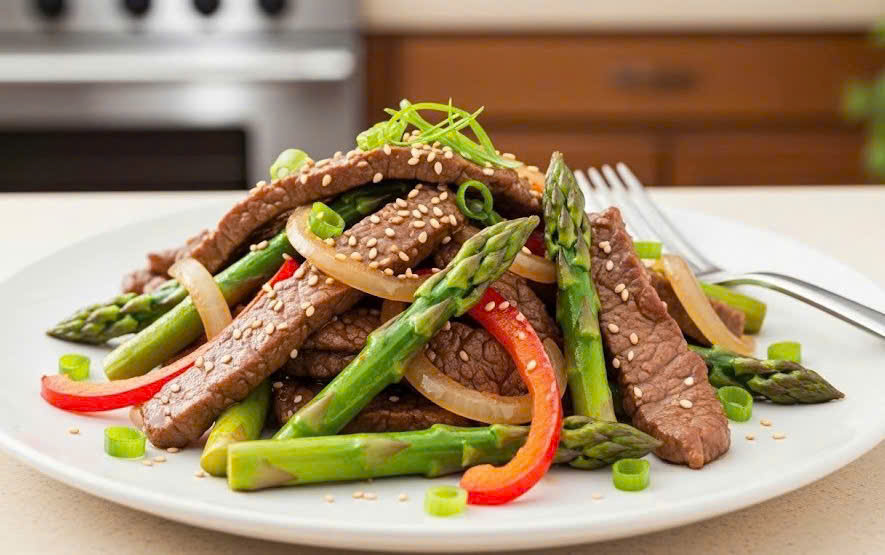High cholesterol, also known as hyperlipidemia, occurs when lipid levels in the blood are abnormal. This includes elevated total cholesterol, LDL cholesterol (bad cholesterol), triglycerides, and decreased HDL cholesterol (good cholesterol). High cholesterol is a leading risk factor for atherosclerosis, heart attacks, strokes, and other cardiovascular complications.
According to Dr. Dao Thi Yen Thuy, Head of the Diet and Nutrition Department at Tam Anh General Hospital in TP HCM, red meats like beef, pork, and lamb provide high-quality protein, iron, and B vitamins. However, individuals with high cholesterol should limit their daily intake to 70-100g (about 2-3 small pieces) and avoid consuming it every day. Excessive red meat consumption, especially fatty cuts, can increase LDL cholesterol and triglycerides, contributing to atherosclerosis and raising the risk of heart attack and stroke.
Those with high cholesterol should opt for lean cuts of meat, trimming away visible fat before cooking. Prioritize boiling, steaming, or dry pan-frying; limit deep-frying, stir-frying with excessive oil, or charring, as these methods can produce harmful oxidants that damage blood vessels. Avoid pairing red meat with high-cholesterol or saturated fat foods like pate, sausages, cold cuts, organ meats, or fatty broths. Instead, accompany red meat with plenty of vegetables and whole grains.
 |
Limit red meat intake to manage cholesterol and prevent high cholesterol. Photo: Trong Nghia |
Completely eliminating red meat isn't necessary and can lead to nutrient deficiencies, especially in protein and iron. The World Health Organization (WHO) recommends that adults consume less than 500g of cooked red meat per week.
Dr. Thuy advises individuals with high cholesterol, along with obesity, fatty liver disease, hypertension, or diabetes, to control their total daily calorie intake. They should prioritize plant-based proteins (beans, nuts, mushrooms) and lean meats like fish and skinless chicken breast to reduce metabolic strain.
Regular check-ups and blood tests are essential to monitor blood lipid levels. Maintaining a balanced diet, regular exercise, adequate sleep, stress management, and weight control are also crucial. Supplementing with natural nutrients beneficial for cardiovascular health, such as phytosterol (which reduces cholesterol absorption in the gut), omega-3 fatty acids (found in fish oil, chia seeds, and flaxseeds), policosanol (derived from sugarcane), and berberine, can also support cholesterol management, protect blood vessels, and prevent cardiovascular complications.
Trong Nghia
| Readers can submit their nutrition questions here for expert answers. |












